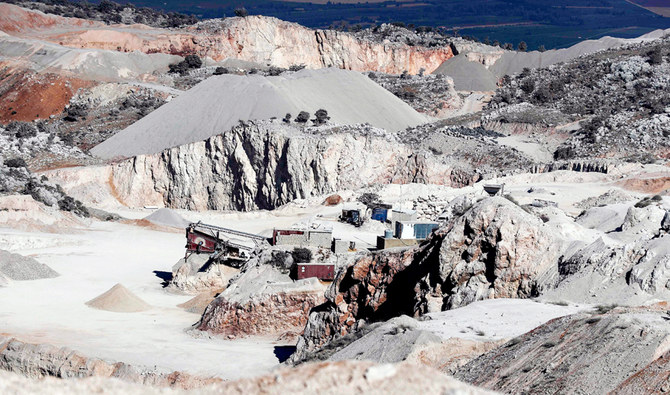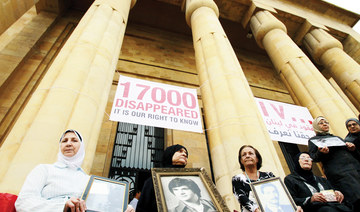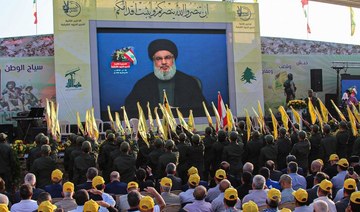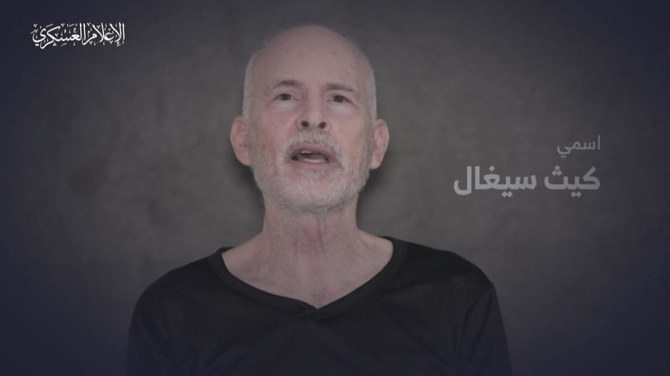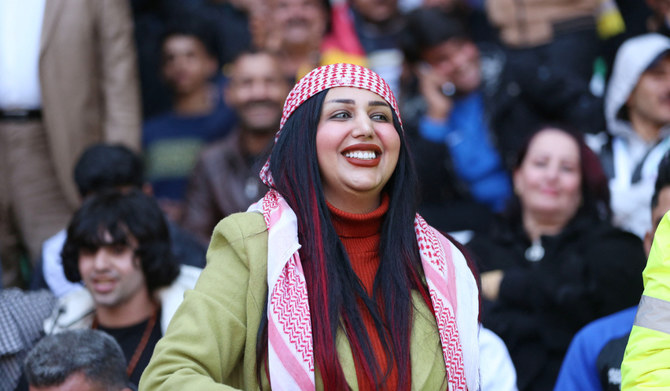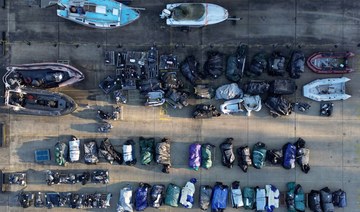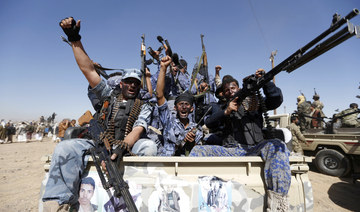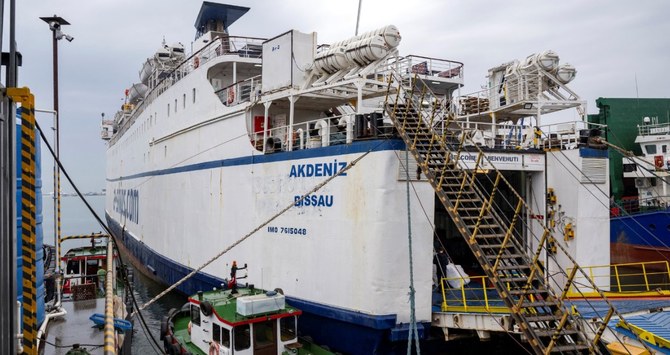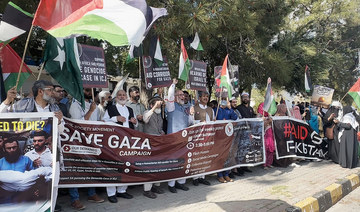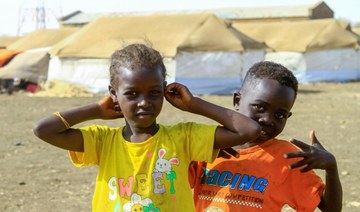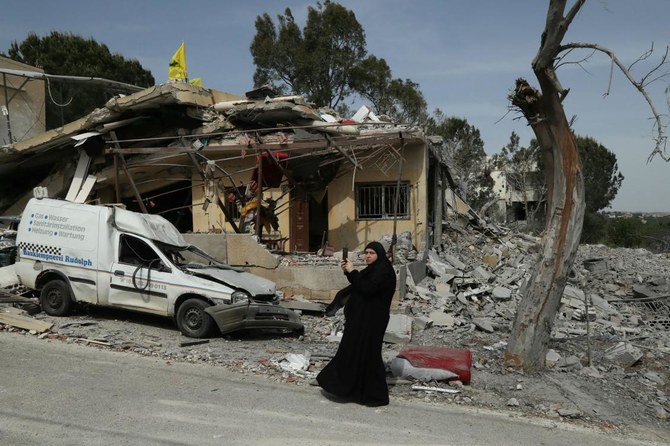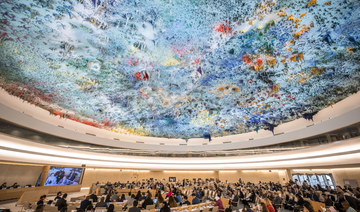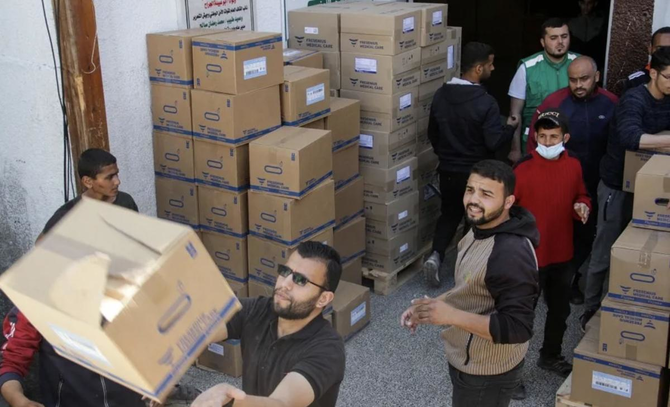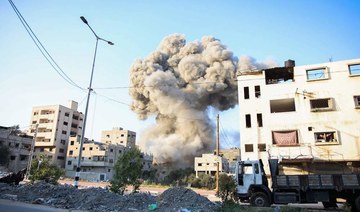AIN DARA, LEBANON: Braving death threats, Abdallah Haddad fought for years to shut down quarries near his village in Lebanon.
The 61-year-old said he and fellow activists received “good news” at the end of July about the gutted mountain in Ain Dara they had worked to protect — a Lebanese court ordered 16 quarries out of 17 to close.
But the victory was short-lived.
Just weeks later, the quarries near his village in central Lebanon — a short drive away from a famed cedar reserve — started operating again, Haddad told AFP.
In 25 years, more than 2 million cubic meters were exploited in the area, in what Haddad calls a “crime” against the mountain.
“Most of the operators don’t have a permit, or work with falsified or expired documents,” he said.
When he returned to Lebanon after years abroad, Haddad joined a group of locals, including the Ain Dara mayor, who were pushing back against the quarries.
“Since we started in 2016, we have organized sit-ins, lobbied and launched legal proceedings on six occasions,” said the activist, who used to work in the banking sector in France. It is a risky undertaking.
“I’ve received phone calls from strangers threatening to ‘break my legs’ or warning me not to go to Ain Dara and threatening to kill me,” he said.
When the verdict was handed down on July 26, dozens of soldiers and police officers deployed to the areas where “armed men” were often seen near the quarries.
Military men, some wearing balaclavas, sealed off the banned operations with red wax, including one area belonging to a powerful political figure.
But soon “most of them had started working again,” Haddad said, adding that “more than 100 trucks a day” were ferrying rocks out of the area.
A boom in quarrying started with the long reconstruction that followed Lebanon’s 1975-1990 civil war. The activity became a top post-conflict industry.
Each year, Lebanon exports hundreds of thousands of tons of cement.
There are more than 1,300 quarries over 50 sq. km. in the country, according to a 2017 satellite survey conducted by the Lebanese army.
They are regulated by a 2002 decree, but an Environment Ministry official who asked to remain anonymous said “only a dozen of these sites” follow regulations.
“The quarries cause environmental degradation amounting to $610 million a year,” he added. Activists blame corruption and indifference.
They say the fact that several key political figures have stakes in cement factories has created a climate of impunity.
Among them, influential Druze politician Walid Jumblatt, who is a shareholder in the nation’s third biggest cement factory “Sibline.” In June, five people were wounded during a sit-in near Ain Dara.
“Armed men” at the entrance of a quarry belonging to tycoon Pierre Fattouche and his brother Nicolas, a former minister and lawmaker, “opened fire on us,” Ain Dara Mayor Maroun Badr told AFP.
Haddad says the Fattouche quarries have exploited “1 million sq. meters with a 1994 permit for 2,000 sq. meters.”
Fattouche did not respond to requests for comment.
As war winds down in neighboring Syria and in Iraq, activists fear there will be a further uptick in quarrying to meet reconstruction demands across the border.
In a bid to turn the tide, a group called the “Popular Coalition against Quarries” was formed.
Georges Inati, the head of an olive oil producers’ association in the northern Koura region, is a member.
In and around his village of Kfarhazir, hills facing the Mediterranean have been “defaced,” he said, leaving behind a lunar landscape. The rock is taken to a nearby cement factory in the coastal town of Chekka.
Widespread quarrying has “condemned the ancestral cultivation of olive, fig and almond trees,” said the 55-year-old.
But unlike in Ain Dara, the protest movement in Kfarhazir has not yet reaped even temporary results. Inati accuses the quarry owners of having bribed the local authorities.
“Some money was handed to some political parties, clergy members, and some municipalities so they turn a blind eye,” he claimed.



